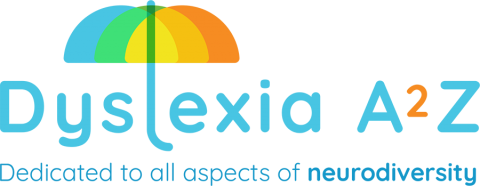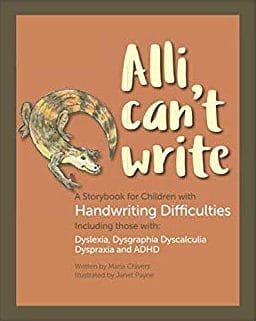Webinar Assistive Technology & NeurodiversityEmpowering Older Adults with the Right Tools Assistive Technology (AT) is incredibly valuable for people of all ages—yet it's often only associated with students. In reality,...

Dyslexia – Frequently Asked Questions (FAQ’s)

Dyslexia Frequently Asked Questions (F.A.Q.)
Dyslexia is a Specific Learning Difficulty (SpLD), appearing as severe difficulties with literacy skills.
We get quite a few questions from people asking about Dyslexia and Specific Learning Difficulties (SpLDs), so I have tried to answer some of the more common questions. If you wish to add something, please feel free to let me know.
1. What is Dyslexia?
Dyslexia is a Specific Learning Difficulty (SpLD).
2. What Causes Dyslexia?
Most specialists consider dyslexia to be a hereditary genetic condition. Dyslexia often runs in families. The causes have not been fully established at the moment.
However, dyslexia can be caused in other ways, i.e., stroke, severe head injury etc.
3. What are the Symptoms of Dyslexia?
People with dyslexia have different types of problems. For a list of symptoms, go to the
Dyslexia Checklist – Children up to Seven Years’ or Dyslexia Checklist – Children Seven Years Plus.
4. Where Can I get a Dyslexia Test?
Psychologists – can test for Dyslexia, Dyscalculia, Dysgraphia etc.
You can find out more here tests for dyslexia and other learning difficulties.
5. Where Can I get Dyslexia Assessment?
Specialist Tutors can assess for dyslexia, and some can test for writing speed for dysgraphia.
You can find out more about assessments for dyslexia and other learning difficulties here.
7. Where Can I get Private Tuition for Reading, Writing and Spelling?
Psychologist Tests, Specialist Tutor Assessments and Private Tuition. Please go to the following webpage.
9. Can you Cure dyslexia?
You cannot cure dyslexia because it is not an illness. However, you can be taught ways to ‘overcome dyslexia’. Teachers should use multi-sensory learning methods.
10. Is Dyslexia an Illness?
Dyslexia is not an illness but a Specific Learning Difficulty (SpLD).
11. Is Dyslexia a Disease?
Dyslexia is not a disease; it is a Specific Learning Difficulty (SpLD).
12. Is Dyslexia Hereditary?
Most specialists consider dyslexia to be a hereditary genetic condition. Dyslexia often runs in families.
12a. Is Dyslexia Real?
Approximately 10% of the population has dyslexia. Dyslexia is very real and is recognised as a registered disability and recognised by the World Health Organisation (WHO).
13. Is Dyslexia a Learning Difficulty?
Dyslexia is recognised as a Specific Learning Difficulty (SpLD).
14. Is Dyslexia Considered a Disability?
Dyslexia is a Registered Disability under the 2010 Equality Act (EA).
14a. Where Does the Word’ Dyslexia’ come from?
The word ‘dyslexia’ comes from the Greek word,
‘dys’ is a term for ‘difficult’ and
‘lexia’ means reading, thus difficult with reading.
15. If you Have Dyslexia, will you Always Have it?
Yes, like colour blindness, it is permanent.
15a. Is Dyslexia Real?
Approximately 10% of the population has dyslexia. Dyslexia is very real and is recognised as a registered disability and recognised by the World Health Organisation (WHO).
15b. If you have Dyslexia, are you Stupid?
No, you are not stupid if you have dyslexia. On the contrary, people who are dyslexic are usually very creative.
15c. Is it true that NASA and GCHQ Invite Applications from People with Dyslexia?
Yes. This is thought to be because people with dyslexia think uniquely, which is why NASA have someone with dyslexia on most of their teams.
Another job they are good at is ‘spying’. In the UK, GCHQ etc., our ‘Spy Agencies’ actively recruit people with dyslexia because they are very creative and think differently than others, therefore often can sort out very complex matters.
16. Are Dyslexics of Average Intelligence?
People with dyslexia are often of high or above-average intelligence. These difficulties often result in incredible frustration, bearing in mind that people with dyslexia usually have high or above-average intelligence.
17. How many People have dyslexia?
Dyslexia affects approximately 10% of the population.
17a. Why do Children Want the Same Bedtime Story over and over again?
According to academics, children who demand the same bedtime story be read over and over may learn more than those who choose a different tale every time. More here.
18. What Signs Should I Look out for if I Have Dyslexia?
Look at the signs for Dyslexia on the Dyslexia Checklist or go online and try one of the free dyslexia online tests.
19. Are there Hood things about Having Dyslexia?
Yes, people with dyslexia are usually very good at creative work and excel in areas such as:
- Architecture
- Arts
- Computer sciences
- Construction
- Electronics
- Engineering
- Entertainment
- Mathematics
- Physics
- Sports
20. Is Dyslexia a ‘Gift’?
Many people think dyslexia is a ‘gift’ because they are creative and usually very good at their chosen careers. One of the reasons for their success is that they have the tenacity to succeed and don’t give up easily. Another reason may be that most dyslexics “think outside of the box” and find it easier to ‘lead’ rather than work in a particular manner.
21. My School Headmaster has Told me that Dyslexia does not exist. What Can I do about it?
In the UK, Dyslexia comes under the Equality Act (EA). Therefore, you should immediately complain to your Local Education Authority (LEA).
The World Health Organisation (WHO) also recognises dyslexia as a disability.
20. Does dyslexia affect Men and Women equally?
Until recently, it was thought that dyslexia affected more males than females (approximately 75-80% of men). However, there has been some research in the last few years to suggest that it is more likely to be 50/50. Further research is being undertaken to try to find out more accurate figures.
21. My child is six, and I think he may be dyslexic. Where can I go to have a Dyslexia test?
Initially, look at the checklist on our Dyslexia Indicator List for up to seven years. If you still think the child is showing signs of dyslexia, you will need to ask the school for a test with an educational psychologist. This may take a long time; therefore, it may be best to go private, but these tests are expensive because they take several hours to complete.
22. My child is eight, and I think he may be dyslexic. Where can I go to get him a test for dyslexia.?
Initially, look at the checklist on our Dyslexia Indicator List for seven-plus years. If you still think the child is showing signs of dyslexia, you will need to ask the school for a test with an educational psychologist. This may take a long time; therefore, it may be best to go private, but these tests are expensive because they take several hours to complete.
23. My child needs a dyslexia test, but the school won’t carry out one. What can I do?
If you show that your child needs a test, you can approach the teacher or headteacher and request an assessment. However, only the head teacher can put your child forward for an assessment with an Educational Psychologist. Sometimes, this may take a very long while your child falls further behind. It may be best for you to have your child tested privately.
24. My son is at school. How can I get him tested for dyslexia?
If your child has dyslexia, you can ask the school to test/assess him. In the first instance: Ask the class teacher if you do not get a satisfactory answer in a reasonable time, say (two weeks). Ask the head teacher to intervene. If you still do not have an adequate response, it may be better to go private to:
1. A Specialist Teacher for a Diagnostic Assessment
2. An Educational Psychologist or
3. A Specialist Dyslexia Testing Centre.
25. Is there any treatment for dyslexia?
An Educational Health Care Plan (EHCP) is implemented if your child’s difficulties are identified. With the correct tuition and support, your child can overcome their problems. This would usually involve a specialist teacher putting in alternative approaches to his work, i.e., (multi-sensory teaching methods), which use all the senses – especially visual techniques, phonological techniques and physical movement. These teaching methods have proven to be highly effective and help students to reach their potential.
26. Is there a booklet where I can get factual information on dyslexia and get help at school?
Read the Code of Practice Information Booklet produced by the DfES.
www.dfes.gov.uk
27. How Many Self-Made People are Millionaires?
1Dyslexia ‘can be route to riches’
Self-made millionaires are four times more likely to suffer from dyslexia than the rest of the population, a study has revealed.
Psychologists found that 40 per cent of the businessmen and women they studied were diagnosed with learning difficulty.
by Charlotte Gill, Daily Mail
1Dyslexia ‘can be route to riches’ | Daily Mail Online
28. Do People from other Countries have dyslexia?
Dyslexia occurs in all races, backgrounds and abilities.
28a. Is dyslexia on the autism spectrum?
No. Dyslexia is a learning difficulty, while autism is a developmental disorder.
29. Is there any research being carried out for dyslexia?
*The NINDS and other institutes of the National Institutes of Health, including the National Institute of Child Health and Human Development and the National Institute of Mental Health, conduct research on dyslexia. Current research avenues focus on developing techniques to diagnose and treat dyslexia and other learning disabilities, increasing the understanding of the biological basis of learning disabilities, and exploring the relationship between neurophysiological processes and cognitive functions with regard to reading ability.
*NINDS March 2005©
30. Can you recommend some good books on dyslexia?
There are hundreds of excellent good books on the dyslexia book list.
31. Where can I get help for dyslexia?
There are many valuable organisations. Click on the dyslexia links.
32. Can you test adults for dyslexia?
Go to the page for adults with dyslexia. There is a lot of beneficial information there.
33. If I go to the Open University as a full-time student, can I get the ‘disabled student’s allowance’ (DSA)?
The Open University has a system similar to other Universities. To apply for the Disabled Student’s Allowance (DSA), please go to their website. Open University to go directly to their website for further help and advice.
It often takes quite a long time to claim this allowance, so you must apply for it as soon as you intend to attend university.
33a. When was the term dyslexia invented?
The term for dyslexia was first invented in 1887 by German Ophthalmologist Rudolf Berlin.
33b. Where was Dyslexia discovered?
Dyslexia was discovered in Germany.
33a. What percentage of self-made millionaires are dyslexic?
According to LDOnline, 140% of the 300 millionaires who participated in the more comprehensive study had been diagnosed with dyslexia. Adrian Atkinson, a business psychologist who worked with the research group, noted, “Most people who make a million have difficult childhoods or have been frustrated in a major way.
1http://www.ldonline.org/article/5665/
34. What is an ordinary human thing that often makes non-dyslexics believe they’re dyslexic, even when they might not necessarily be?
I’ve already been diagnosed, but sometimes I feel unsure of whether or not I’m actually dyslexic. I just want confirmation and thus would like to hear of some things that are completely normal but often get mistaken for dyslexia.
A. Understanding Common Challenges That May Be Misconstrued as Dyslexia
It is important to recognise that some challenges typically associated with dyslexia can also affect individuals who do not have the condition. For example, many people struggle with spelling, primarily if they have never been taught proper spelling techniques or are tired or distracted.
Another common difficulty is telling time on an analogue clock. If a person has not been taught how to read an analogue clock, they might struggle with telling the time and understanding basic math concepts. Reading an analogue clock teaches us about fractions, such as quarters and halves. For instance, “a quarter past nine” refers to the time and introduces the idea of a quarter as a fraction—one-fourth of something, like a piece of cake or an apple. These lessons are often absorbed subconsciously, helping with broader mathematical understanding over time.
Additionally, many individuals, including those with dyslexia, face challenges with handwriting. This can be attributed to the fact that over twenty-five muscles in the hand and fingers are needed for writing. Developing strength and coordination in these muscles is essential for legible handwriting and drawing.
These examples illustrate how someone without dyslexia might experience similar struggles and mistakenly believe they have the condition. Understanding these nuances can help clarify the differences and challenges associated with dyslexia.
I hope this explanation helps answer your question.
Maria Chivers
12th January 2025
Latest Dyslexia Posts
Grandparents – Easter Egg or Educational Toys?
Grandparents/Teachers/Carers - Why Not Swap Easter Eggs for an Educational Game Kids Will Love? Easter is a time of joy, surprises, and little treats—but why not think beyond the usual...
Annual Dyslexia Awareness Dates in 2025
Annual Dyslexia Dates 2025 Helping to Raise Understanding & Awareness of Dyslexia. Each year, organisations, charities, campaigners, and schools participate in various activities to raise awareness of this learning difficulty. ...
Why Should We Bother Learning to Write by Hand?
Why should we bother learning to write by hand? Should we use digital devices, such as laptops, computers, etc.? Does what we use matter as long as a child can...
Annual Dyslexia Dates 2024 Helping to Raise Understanding & Awareness of Dyslexia. Each year, organisations, charities, campaigners, and schools participate in various activities to raise awareness of this learning difficulty. ...
Dyscalculia Conference by Positive Dyslexia Ltd. Dyscalculia Conference by Positive Dyslexia Ltd would like to invite you to their Dyscalculia Conference. In conjunction with Edge Hill University, Lancashire – Dyscalculia...

